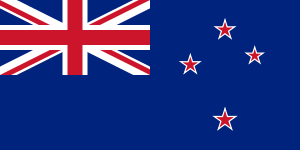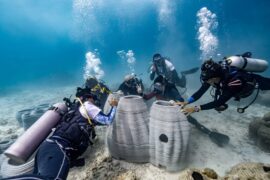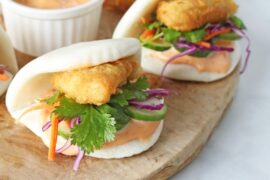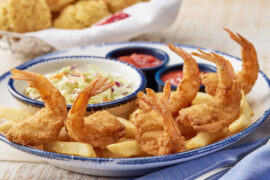Facts on the toothfish ordered by New Zealand Trade Minister Tim Groser during a dinner party abroad while attending Trans-Pacific Partnership talks are now clear. This fish was not “protected,” nor was it sourced from Antarctica as recent “gotcha” stories in The New Zealand Herald have asserted.
This fish was sourced from the Australian Heard Island and McDonald Islands fishery, which is certified as ecologically sustainable by the Marine Stewardship Council (MSC) and rated “Best Choice” by the Monterey Bay Aquarium Seafood Watch Program.
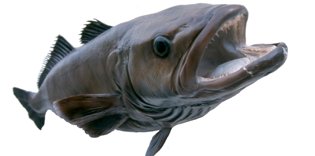 Herald political writer Isaac Davison reported on August 1 that Groser was “singled out for scrutiny after he and two officials ordered Antarctic toothfish – a species which New Zealand is going to huge lengths to protect – at a Singapore restaurant in January, the ministerial credit card receipts released by the Department of Internal Affairs show. The receipt says Mr. Groser spent $300 on the meal at Table for 7, which included Chilean Seabass – also known as Patagonian or Antarctic toothfish – and a $90 bottle of Central Otago pinot noir.”
Herald political writer Isaac Davison reported on August 1 that Groser was “singled out for scrutiny after he and two officials ordered Antarctic toothfish – a species which New Zealand is going to huge lengths to protect – at a Singapore restaurant in January, the ministerial credit card receipts released by the Department of Internal Affairs show. The receipt says Mr. Groser spent $300 on the meal at Table for 7, which included Chilean Seabass – also known as Patagonian or Antarctic toothfish – and a $90 bottle of Central Otago pinot noir.”
According to calculations by the Department of Internal Affairs, the “biggest-spending minister” [Davison’s words] in the country rang up $201,841 in travel expenses from April 1, 2013 to June 30, 2014. While that figure may be accurate, there was nothing untoward about Groser and company sinking their teeth into toothfish.
 “It is unfortunate that these baseless claims have been made without care to check the facts. One of the strengths of MSC certification is the robust chain of custody which ensures traceability of product from the ocean to the consumer’s plate,” said George Clement, chief executive of the Deepwater Group, a non-profit organization that works in partnership with the Ministry for Primary Industries to ensure that New Zealand gains the maximum economic yields from its deepwater fisheries resources, managed within a long-term sustainable framework.
“It is unfortunate that these baseless claims have been made without care to check the facts. One of the strengths of MSC certification is the robust chain of custody which ensures traceability of product from the ocean to the consumer’s plate,” said George Clement, chief executive of the Deepwater Group, a non-profit organization that works in partnership with the Ministry for Primary Industries to ensure that New Zealand gains the maximum economic yields from its deepwater fisheries resources, managed within a long-term sustainable framework.
The restaurant that served the meal to the trade minister’s dinner party has weighed in too.
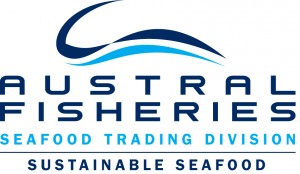 “We take sustainability seriously,” said Eugenia Ong, chef director at Table at 7, the establishment where Groser dined. “Our toothfish is sourced from Austral Fisheries, which catches the fish in the Australian Heard Island Territories. The fish is MSC certified.”
“We take sustainability seriously,” said Eugenia Ong, chef director at Table at 7, the establishment where Groser dined. “Our toothfish is sourced from Austral Fisheries, which catches the fish in the Australian Heard Island Territories. The fish is MSC certified.”
The Marine Stewardship Council is an international non-profit organization that holds a set of standards against which the performance of fisheries can be independently assessed to determine their ecological sustainability.
The toothfish that was ordered by the trade minister was sourced from waters that have been certified as sustainable since March 2012.
“Like New Zealand, Australia takes pride in its sustainably managed fisheries. We work hard to ensure as many of our fisheries as possible are able to meet the very high standards required to obtain MSC certification. It’s a shame that there are still those who do not bother to educate themselves about the work we are doing,” said David Carter, chief executive officer of Hawthorn, Western Australia-headquartered Austral Fisheries.
Alison Barratt of Monterey Bay Aquarium sums it up in National Geographic: “For many years conscious consumers have observed a ‘red list’: swordfish, monkfish, Chilean Seabass [toothfish] etc. But over time things change. These species were previously all on the Seafood Watch ‘red list,’ but the science no longer supports that in all cases. It’s change we should welcome, but it’s not always easy to accept. The truth is that consumer advocacy for better fishing practices has galvanized action by major buyers of seafood and the industry – and that’s a good thing! We believe it’s no longer necessary to ‘Take a wholesale pass on Chilean Seabass.’ Look for the blue eco-label of the Marine Stewardship Council, or ask where in the world it comes from. This will help you find the best and avoid the rest.”

